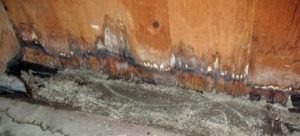Why are Philips Ventilators and Breathing Machines Being Recalled?
In recent months, there have been some troubling developments with regards to various breathing machines made by Philips Respironics. Numerous users have come forward after being diagnosed with lung damage and even cancer after using Philips machines, and the cause can be traced back to a noise-canceling polyester-based polyurethane (PE-PUR) foam that seeps into the machines’ breathing apparatus and eventually into users’ airways.
These issues have been found in numerous Philips models, including mechanical ventilators, continuous positive airway pressure (CPAP) models, and BiLevel positive airway pressure (BiPAP) models. Several products have since been voluntarily recalled, which we will discuss below.
However, it should be noted first that all potential injury claimants should retain a trusted personal injury and product liability attorney to handle their case effectively. At Van Law Firm, our award-winning attorneys and legal staff have helped countless victims recover compensation after suffering injuries related to faulty or negligent products. Call our office nearest you today for more information.
Philips Voluntarily Recalls Several Products
For a free legal consultation, call (725) 900-9000
Starting in late April of 2021, complaints began to pile up from consumers who noticed troubling black debris in their breathing apparatus, along with strange discomforts and symptoms. It didn’t take long to unearth the cause of these issues: polyester-based polyurethane (PE-PUR) foam. Philips utilizes this material in a large number of their CPAP, BiPAP, and ventilator machines as a sound-proofer that helps reduce noise and vibrations. After extensive use, the foam begins to break down inside the machine, releasing harmful particles and gases that users then breathe continuously.
As a result of these discoveries, Philips officially recalled numerous products on June 14, 2021 due to the risks of foam inhalation. The recall includes machines made from 2009 through April 2021, and although the exact number of machines this affects is unknown, estimates start in the millions.
Click to contact our personal injury lawyers today
Whenever a company announces a recall of its products, the Food and Drug Administration (FDA) applies a recall classification grade based on the risk involved. For Philips breathing devices, the agency has administered a Class I recall, which is the most serious grade. This classification, according to the agency, indicates that “there is a reasonable probability that the use of or exposure to a violative product will cause serious adverse health consequences or death.”
Anyone who has used Philips breathing machines and has experienced the following symptoms is being urged to stop immediately and seek medical attention:
- Throat inflammation or pain
- Shortness of breath
- Pain or discomfort in the lungs
- Asthma (new or worsening)
- Heart attack
- Pneumonia
- Stroke
- Lung, kidney, colon, or heart complications
More Details on PE-PUR Foam
Complete a Free Case Evaluation form now
The PE-PUR foam used for soundproofing is harmless when fully intact. However, once the substance begins to decompose over time, particulate matter and harmful gasses are released, and as you can imagine, the only place for them to go is into your lungs and airways. Philips’ internal study of degraded foam revealed 5 extremely harmful chemicals, including Toluene diamine, Diethylene glycol, and Dimethyl diazene. Not only that, but even if there are no particles or debris, multiple noxious gasses are emitted from the foam, and those are also highly toxic for consumers.
Given the recency of these findings, scientists haven’t definitively determined all of the health risks that PE-PUR foam and gas inhalation pose to consumers. However, it is generally believed that constant exposure significantly increases users’ risk of cancer and/or damage to internal organs.
Relevant Claim Materials and Guidelines to Consider
Anyone who may wish to move forward with a claim against Philips should consider amassing as many materials as possible, including:
- Anything related to proof of use, prior conditions: If you are alleging that a product caused you harm, you must be able to prove that you actually used the product in question. For a case like this that is not difficult, as you can just present the machine itself. In addition, if you are using such a machine in the first place, you likely have pre-existing conditions–make sure that you are able to document these conditions accurately, because if you can’t it becomes very difficult to prove that the product actually worsened your health.
- Proof of harm: In order to have a successful claim, you need to be able to prove that the product in question caused you demonstrable harm. This can be done through medical records or testimony.
- Proof of damages: Lastly, you will need to show that the injuries you sustained did in fact cause you damages. This is typically done by presenting incurred medical costs, lost wages from time spent away from work, and other materials.
At this point in litigation, certain criteria and guidelines have started to emerge, including but not limited to:
- Case Criteria
- First use of Philips machine must be prior to 4/25/2021
- Claimants must be able to document at least one year of use of a recalled device
- Claimants must be non-smoking during time of use
- Injuries No Longer Being Considered
- Breast cancer for patients over 40
- Prostate cancer for patients over 50
- Bladder cancer
- Malignant tumors
- Lymphoma
- Acute inhalation injury
- Respiratory failure
List of Recalled Philips Machines
The current list of recalled Philips products is as follows:
- DreamStation ASV
- DreamStation ST, AVAPS
- SystemOne ASV4
- C Series ASV, S/T, AVAPS
- OmniLab Advanced Plus In-Lab Titration Device
- SystemOne Q series
- DreamStation CPAP, Auto CPAP, BiPAP
- DreamStation Go CPAP, APAP
- Dorma 400, 500 CPAP
- REMStar SE Auto CPAP
- E30 (Under Emergency Use Authorization)
- Trilogy 100 Ventilator
- Trilogy 200 Ventilator
- Garbin Plus, Aeris, LifeVent Ventilator
- A-Series BiPAP V30 Auto Ventilator
Contact Experienced Product Liability Attorneys
If you or someone you love has used Philips breathing machines or ventilators and has recently experienced complications such as cancer or organ disease, it is imperative that you contact experienced product liability attorneys as soon as possible. Van Law Firm has helped countless victims of negligent or unsafe products get their lives back to normal, and we’re always searching for more. Give our office nearest you a call as soon as possible to get started with a free case review and consultation.
No obligation consultations are always free.
Let Us Help You! Call Now: (725) 900-9000


